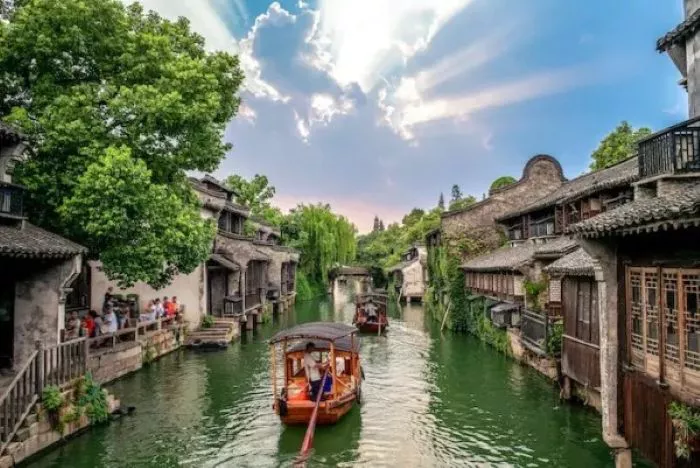China’s tourism sector has blossomed alongside spring flowers, with official data revealing robust growth in domestic travel. According to the Ministry of Culture and Tourism, the first quarter of 2025 saw 1.794 billion domestic trips, marking a substantial 26.4% year-on-year increase. Travel spending surged to 1.8 trillion yuan, up 18.6% compared to the same period last year, painting a vibrant picture of China’s recovering consumer economy.
Ethnic Tourism Thrives in Guangxi’s Dong Villages
In the picturesque Chengyang Eight Villages of Guangxi’s Sanjiang Dong Autonomous County, cultural tourism is flourishing. Local Dong ethnic performers dressed in traditional costumes welcome visitors with Lusheng flute music and ceremonial dances. Huang Nengsheng, director of the scenic area office, reports approximately 230,000 visitors in Q1 2025, generating 28 million yuan in comprehensive tourism revenue – a 15-20% annual increase. “Our village collective’s banquet service, which normally serves 200-300 diners per meal, regularly accommodates 600-700 during holidays,” Huang noted, highlighting overwhelming demand.
Yunnan’s Floral Paradise Attracts Record Visitors
The Taipinghu Forest Park in Yunnan’s Mile City has become a floral wonderland, with thousands of chrysanthemums creating golden seas that rival animated fantasy landscapes. General Manager Chen Siting reports nearly 300,000 visitors and 30 million yuan revenue since January. The park has innovatively integrated floral elements across all visitor experiences – from edible flower cuisine to rose petal hot springs. “We offer diverse activities including floral handicraft workshops and specialty flower banquets,” Chen explained, while therapist Cheng Qiuyue added that their signature floral baths provide both physical relaxation and aesthetic pleasure.
Integrated Tourism Models Drive Consumption
Platform data reveals booming composite tourism models, with Meituan-Dianping reporting 70% monthly growth in flower-viewing related content. Innovative combinations like “flower viewing + camping” and “flower viewing + dining” are gaining popularity. This trend reflects broader consumption upgrades, where integrated experiences rather than single attractions increasingly dominate tourist preferences.
Ancient Landmark Reborn Through Night Economy
Changsha’s 400-year-old Tianxin Pavilion has been revitalized as a nighttime attraction, with light installations transforming the historical site into a dreamscape. Wu Yingshu, general manager of the operating company, explains their strategy: “By focusing on four nighttime hours and combining technology with cultural heritage, we’ve made Tianxin Pavilion Changsha’s premier night tourism destination.” The approach has proven successful, with over 70% of visitors coming from outside Hunan province, including major cities like Beijing, Shanghai, and Guangzhou.
Tourism Wave Reflects Broader Economic Momentum
From crowded airports to packed scenic spots, China’s bustling tourism activity mirrors its economic resilience. As diverse regional attractions continue innovating – whether through ethnic culture, natural beauty, or historical reimagining – the thriving tourism sector contributes significantly to the nation’s economic currents, demonstrating the enduring power of consumption-driven growth in China’s development model.
Related Topic:
- Morocco: A Tapestry of North African Wonders
- Australian Tourism Industry Rides China’s Visa-Free Wave
- 2025 Chinese Opera Festival Debuts in Vienna with Stunning Wu Opera Performance

